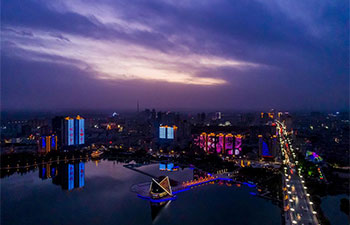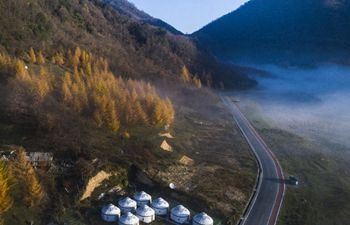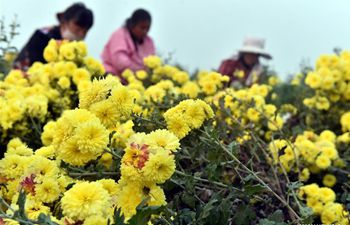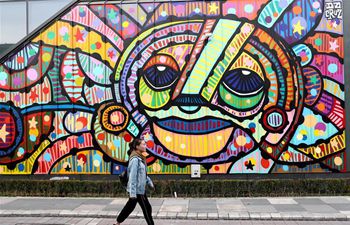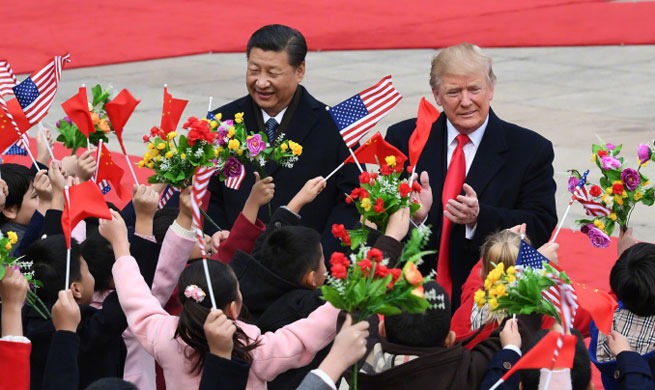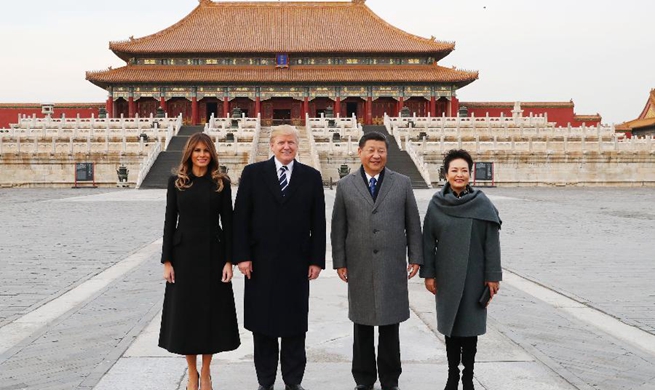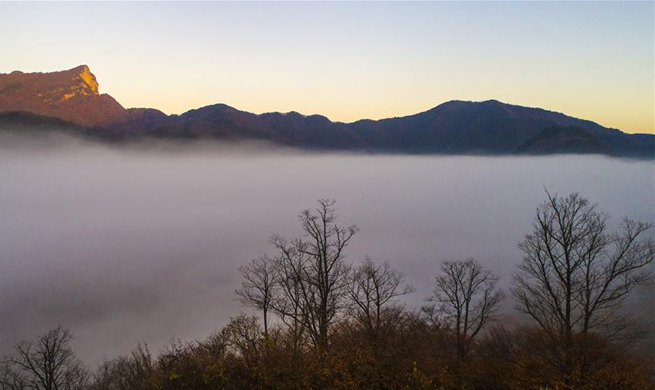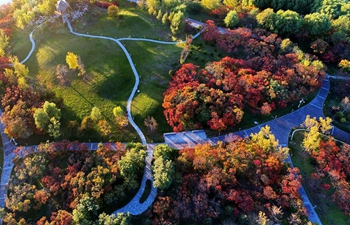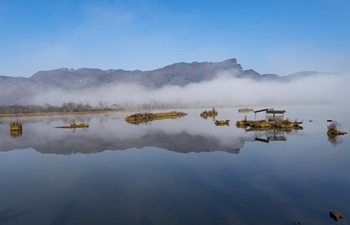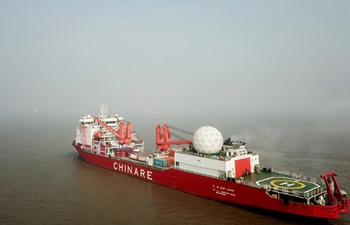NEW DELHI, Nov. 9 (Xinhua) -- As the Indian capital has come under the grip of suffocating smog this week, the lack of political will and refusal to act on this public health emergency with a sense of urgency have caused people extreme suffering.
The deteriorating air quality in Delhi, which emerges unfailingly around this time every year, is clearly the doing of the governments that have failed its people, environmental experts said.
Through its indifference and inaction and political blame-game instead of a coordinated action with necessary agencies and environmental non-governmental organization, the state and the central governments brought the situation to where it stands today, the experts say.
A similar smog engulfed Delhi last year as well due to the burning of biomass and other farm residue in the neighbouring northern states of Punjab and Haryana.
Last year, the Delhi government had shut schools and imposed measures like the car rationing schemes and also called upon people to use public transport. But once the situation improved, issues like air pollution, climate change and increased warming were pushed to the sidelines.
While activists and environmentalists kept trying to keep the impending situation warm, the governments showed no interest in taking a comprehensive measure before it was too late.
This was at the time when world leaders were mulling on the Paris Accord that deals with climate change and unites all nations in committing themselves to deal with it.
"Construction dust, vehicular pollution, and domestic and industrial emissions as other major factors besides burning of biomass cause smog in Delhi. This was brought to the attention of the government. Unfortunately, they fail us," said environmentalist Harsh Aggarwal.
"Some positive measures like ban on crackers in Delhi and its adjoining cities before Diwali (the Hindu festival of lights) were only enforced due to the whip cracked by India's Supreme Court but in itself, governments of Delhi, Punjab and Haryana, along with the central government, totally failed to take any comprehensive measures before we reached this point where it has become impossible to breathe in the national capital," he added.
Several world studies clubbed the Indian capital among most polluted cities in the world last year.
"This should have been an enough nudge to take proper actions," said K.P. Singh, a former Delhi University professor.
"However, it is unfortunate that we did not learn from last year. And whatever is happening now is even worse. While we choke and expect strong and stringent measures, the government is only responding in a lukewarm manner. The chief ministers of Delhi and Punjab are engaged in a war of words over smog when they should be working hand-in-hand towards the welfare of the citizens," he added.
While Delhi Chief Minister Arvind Kejriwal sought time from his Punjab counterpart, Amrinder Singh to discuss the issue, the latter put the responsibility on the central government to allot funds to farmers for stubble burning even as he referred to the situation as one with national implication.
The ruling Bharatiya Janata Party also issued a statement, blaming the Delhi government for failing to maintain a working relationship with the neighbouring chief ministers.
Doctors, however, believe it is too late to act and some sections of senior pulmonologists even called for evacuation of the national capital.
"Even at this time I am seeing no strong action. In such a situation, the city should be shut down. We are worried for children and elderly but the government doesn't seem bothered," said Jayant Prakash, a lung surgeon working with a private hospital.
The National Green Tribunal has, however, taken cognizance of the sorry state of the situation.
Slamming the Delhi government, the green court has said, "You have made a mess of Delhi. You have done what you had to, now we will decide what you have to do. Why didn't you issue any direction for shutting down polluting industries and construction?"
While schools have been shut in Delhi, construction halted and parking fees raised, the important thing now is what can be immediately done concretely to improve the situation in the coming years.
It is time for the political leaders to be react to the situation with urgency.




